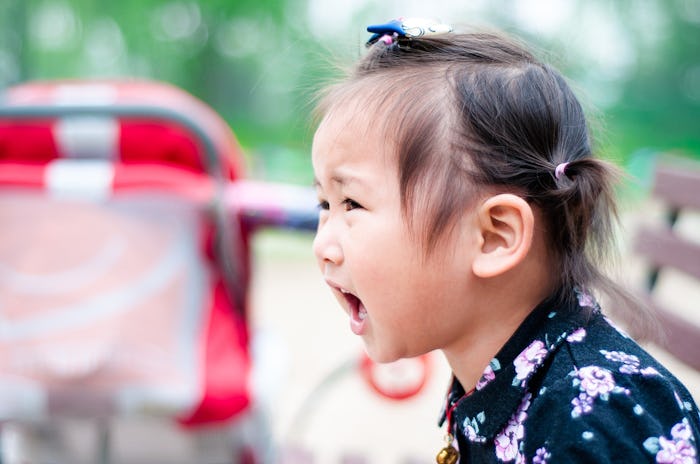The number of parents who believe in spanking their children has steadily decreased over the years, but according to an ABC News poll, a good half of all American parents still occasionally spank their children. Parents who do spank usually do it with good intentions, believing it will help correct a child's conduct — but new research suggests that spanking actually has a negative impact on children's behavior, and it's an effect that can last all the way into their teen years.
A recent study published in Developmental Psychology looked at data collected from nearly 2,000 sets of mothers and children over a number of years. The University of Missouri researchers collected information from families when children were 15 months old, 25 months old, and in the fifth grade, and spoke to the children themselves, as well as their mothers and teachers.
What they found, interestingly enough, was that children who were spanked at a young age generally exhibited worse behavior and temperament later on in life. The results were consistent among all socioeconomic and racial groups, although African-American children's behavior seemed to be most affected by punishment.
"Long-term studies on the links among parenting, temperament and children's social behaviors have been limited, especially among racially diverse, low-income populations," Gustavo Carlo, director of the MU Center for Family Policy and Research, told ScienceDaily. "Our findings show that differences exist in the roles of parenting, temperament and self-regulation and how they impact a child's development."
This isn't the first study to show a negative link between spanking and kids' behavior, either. According to Psychology Today, past research has shown that kids who are punished physically tend to show increased levels of delinquency, antisocial behavior, and aggression. Spanking or hitting children can also negatively affect the bond between parents and children, and it can impact kids' mental health and their ability to understand socially acceptable behavior.
Regardless of the evidence stacked against spanking, many parents still physically punish their children — often due to frustration or a lack of understanding on how else to discipline their kids. Experts from the Emory University Department of Pediatrics suggest replacing physical punishment with rewards for good behavior, consistent rules, and appropriate punishments (such as removing access to toys if children refuse to pick them up).
"It is very important that parents refrain from physical punishment as it can have long-lasting impacts," Carlo told ScienceDaily. "If we want to nurture positive behaviors, all parents should teach a child how to regulate their behaviors early."
Considering that spanking only leads to worse behavior further down the line, it seems like swapping to non-physical alternatives is a better option for both children and their frustrated parents.
